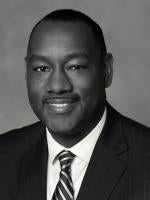The COVID-19 pandemic is presenting unique challenges and causing operational and financial disruptions for many governmental issuers and other borrowers (obligated persons), who are subject to the continuing disclosure requirements of Rule 15c2-12 of the U.S. Securities and Exchange Commission (SEC). One of these challenges is the determination of whether and what to disclose to bondholders under existing continuing disclosure undertakings or in the context of voluntary disclosure.
Recognizing the uncertainty surrounding disclosure obligations during this time, the Chairman of the SEC and the Director of the SEC’s Office of Municipal Securities released a joint public statement on May 4, 2020, addressing the importance of disclosure for municipal bond markets and generally encouraging obligated persons to provide bondholders with as much information about their current financial and operating condition as is reasonably practicable. What is reasonably practicable will depend on many factors that should be discussed with your bond or disclosure counsel. There are, however, some best practices that obligated persons should keep in mind to ensure compliance with their continuing disclosure obligations:
-
Annual Financial Information and Operating Data. With respect to annual financial information and operating data (including audited financial statements), obligated persons must continue to post accurate and complete information to EMMA on or before the applicable filing deadline. For a governmental issuer, this information is typically contained in an annual information statement (AIS). For other obligated persons, this may consist of an annual audit, an annual financial report, and/or some other report or filing, whether annual or periodic, containing specific disclosure information. In instances when an obligated person is unable to post this information on or before the applicable filing deadline due to circumstances related to COVID-19, in public statements, the SEC has stated obligated persons may want to consider posting a notice to EMMA on or before the applicable filing deadline noting the failure to file. Obligated persons should consider including an explanation in the notice that the information could not be posted in a timely manner due to COVID-19. In cases when the information is not posted on or before the applicable filing deadline, every attempt should be made to post the information as soon as possible thereafter and ensure the information contained therein is complete and accurate.
-
Material Event Notices. In public statements, the SEC has stated the COVID-19 pandemic in and of itself does not trigger a requirement to notify bondholders under any of the specific material events enumerated in Rule 15c2-12 (Material Events). However, if one of the Material Events occurs as a result of circumstances related to COVID-19, an obligated person will be required to post a notice of the Material Event to EMMA within ten (10) business days after the occurrence of the Material Event. If an obligated person is unable to post such notice within 10 business days due to COVID-19, the SEC has stated that an obligated person should post such notice to EMMA as soon as possible thereafter. Additionally, the SEC has encouraged obligated persons to consider including an explanation in such notice that it was unable to post the notice in a timely manner because of circumstances related to COVID-19 and, further, to consider posting notice of a failure to file.
-
Voluntary Disclosures. This issue is the primary topic of the joint public statement. Importantly, the statement notes voluntary disclosure “is not a rule, regulation, or statement of the SEC,” it “does not alter or amend applicable law and has no legal force or effect,” and it “creates no new or additional obligations for any person,” meaning that voluntary disclosure does not affect the obligations of obligated persons under existing continuing disclosure certificates or agreements. Generally, the joint public statement encourages obligated persons to provide as much current and forward-looking information to bondholders as is reasonably practicable, in particular, as it relates to the impact of the COVID-19 pandemic. The joint public statement encourages obligated persons to voluntarily disclose the following types of information: sources of liquidity, sources of federal/local aid, and materials prepared for other governmental purposes. Any such voluntary disclosures are subject to the anti-fraud provisions of federal securities laws, but good faith attempts to provide appropriately framed information are not expected to be second guessed by the SEC.
Any forward-looking information should be appropriately framed when it comes to assumptions and estimates. In addition, the joint public statement speaks to obligated persons using “meaningful cautionary language” when providing forward-looking information, such as descriptions of (i) relevant facts or assumptions concerning the reliability and materiality of the information, (ii) how certain information may be incomplete or unknown, and (iii) the process used to produce the information. “Meaningful cautionary language” may include adequate risk disclosure, warning readers about specific risks that may materially impact assumptions, estimates, forecasts, and similar forward-looking information.
In addition, consideration should be given to the existence of certain circumstances in connection with the COVID-19 pandemic, some of which are addressed in the joint public statement, which may cause heightened awareness when it comes to the prospects of providing voluntary disclosure. Examples of these circumstances include: (i) events that are certain (or nearly certain) to cause a payment default in the future, (ii) the need for a payment deferral, (iii) certainty (or near certainty) of a rating change or change in rating outlook in the future, (iv) addressing the impact of COVID-19 in industry sectors that have been placed on negative credit watch, (v) timing considerations with respect to municipal offerings or annual disclosure, and/or (vi) public statements generally acknowledging the pandemic has affected expenses and/or revenues in a meaningful manner and related plans for remedial action. While the existence of these circumstances does not require voluntary disclosure, the existence of these circumstances may present unique opportunities for dialogue between obligated persons and public finance professionals as to the relevance and importance of voluntary disclosure as a result of the COVID-19 pandemic.
Obligated persons are strongly encouraged to consult with their bond or disclosure counsel in complying with annual or other periodic disclosure commitments, material events disclosures, and handling voluntary disclosure to the extent it is appropriate.
While the observations above should be considered in light of COVID-19, obligated persons should also continue to make every attempt to comply with their existing continuing disclosure obligations in a timely manner.
Click HERE for a copy of the joint public statement.







 />i
/>i
